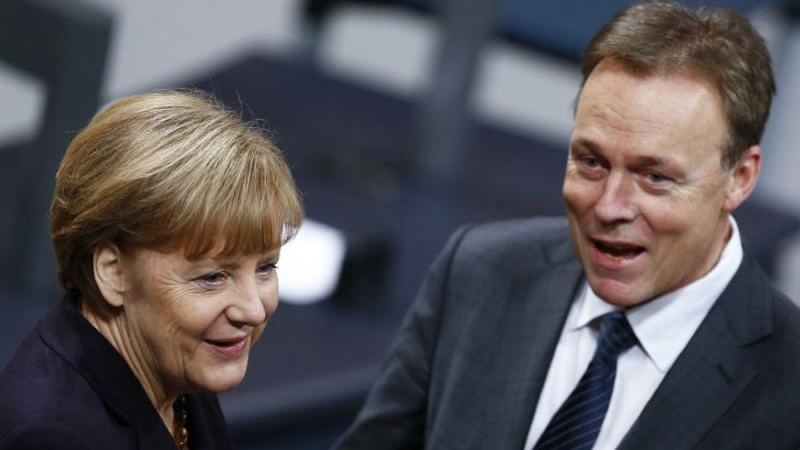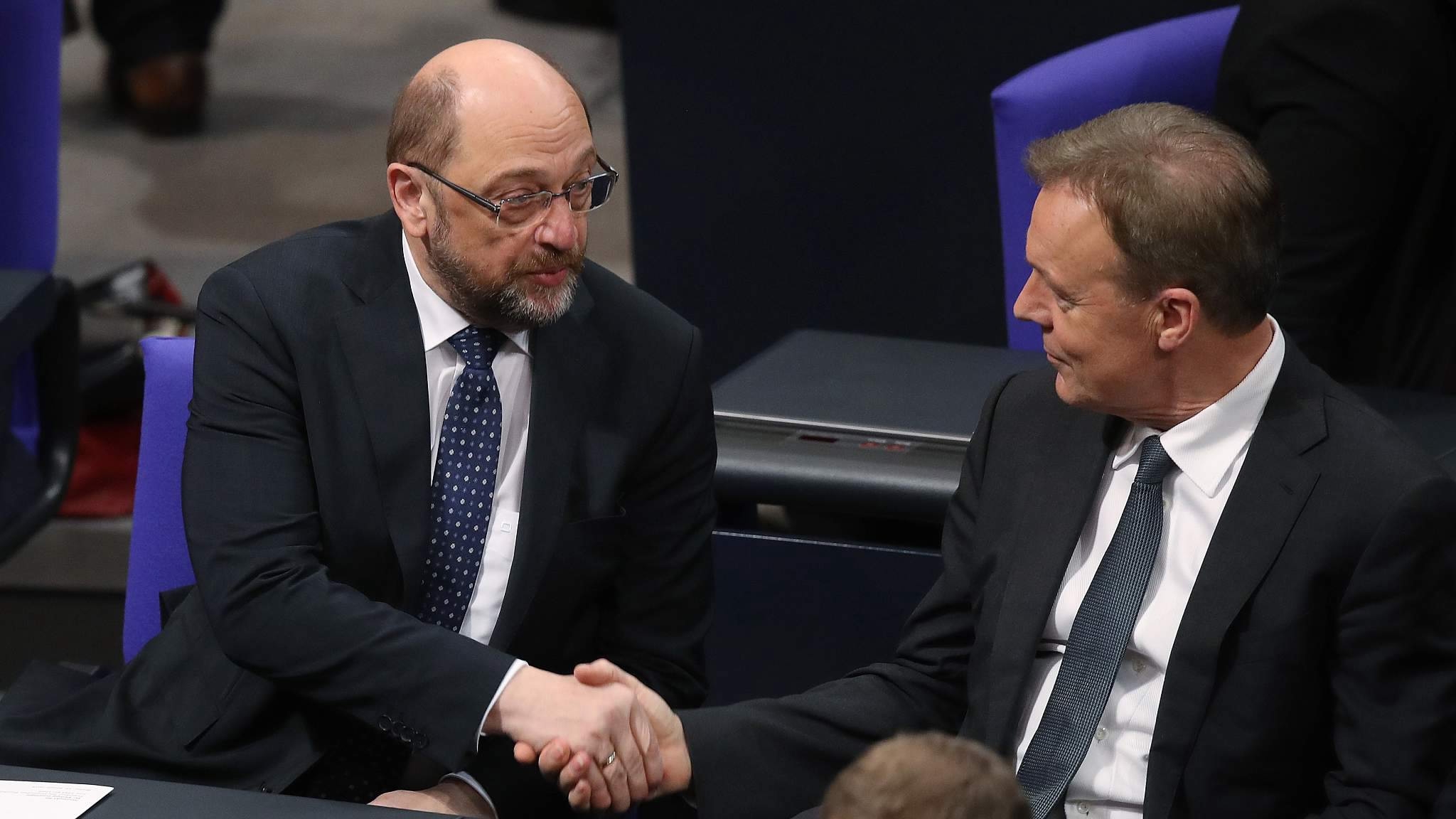
Politics
11:41, 03-Mar-2018
Warning of disaster over 'no' vote on Merkel's German coalition
CGTN

A leading Social Democrat in Germany has warned that a "no" vote by his party against a coalition with Chancellor Angela Merkel's conservatives would spell disaster for Germany and Europe.
But Thomas Oppermann, vice president of the Bundestag lower house of parliament, told Die Welt newspaper that he expected a "clear approval" rate of 55 percent in an SPD postal ballot the results of which will be unveiled on Sunday.
Rejection of another tie-up between the country's two leading parties "would be a disaster for Germany, the SPD and above all, for Europe," Oppermann said.
The SPD's 464,000 members voted on whether to endorse a decision by party leaders to continue the "grand coalition" with Merkel's conservative bloc that has ruled since 2013 despite the SPD's significant losses in the September national election.
The SPD's Jusos youth wing has been lobbying party members to vote against a rerun of the grand coalition, arguing they would do better to rebuild in opposition after the party suffered its worst results since 1993 in the September poll.
Oppermann gave the Jusos credit for triggering a big debate in the SPD and said he expected its leader, Kevin Kuehnert, to continue to make his mark on the party.
He said it needed to be more "self-confident, cheeky and ready for conflict" in the next coalition government.
"The biggest risk would be that we repeat what we did the last time," he said, warning that a passive SPD stance could result in even worse election results after four years.

Martin Schulz (L), head of the German Social Democrats (SPD), greets party colleague Thomas Oppermann as they attend a memorial ceremony for late former Bundestag President Philipp Jenninger in the Bundestag in Berlin, Jan. 18, 2018. /VCG Photo
Martin Schulz (L), head of the German Social Democrats (SPD), greets party colleague Thomas Oppermann as they attend a memorial ceremony for late former Bundestag President Philipp Jenninger in the Bundestag in Berlin, Jan. 18, 2018. /VCG Photo
The SPD initially planned to stay in opposition but agreed to negotiate with Merkel's conservatives after talks with the pro-business Free Democrats (FD) and the environmentalist Greens on a three-way tie-up collapsed in November.
FDP leader Christian Lindner told the Funke Mediengruppe newspaper chain, that new elections would be the best solution if SPD members voted "no." He ruled out revisiting a three-way coalition, given the platforms of the parties involved.
He said the FDP would examine legislative proposals on a case-by-case basis if Merkel was forced to form a minority government, but added: "Such a government would probably only last a few months anyway."
Manfred Weber, deputy leader of the CSU Bavarian sister party of Merkel's Christian Democrats, also backed new elections if SPD members rejected another "grand coalition," arguing that a minority government would impair Germany's standing in Europe.
"Germany would remove itself as a serious factor in Europe and the world," he said.
7368km
Source(s): Reuters

SITEMAP
Copyright © 2018 CGTN. Beijing ICP prepared NO.16065310-3
Copyright © 2018 CGTN. Beijing ICP prepared NO.16065310-3